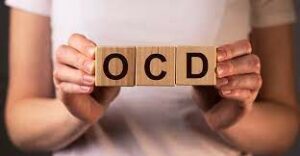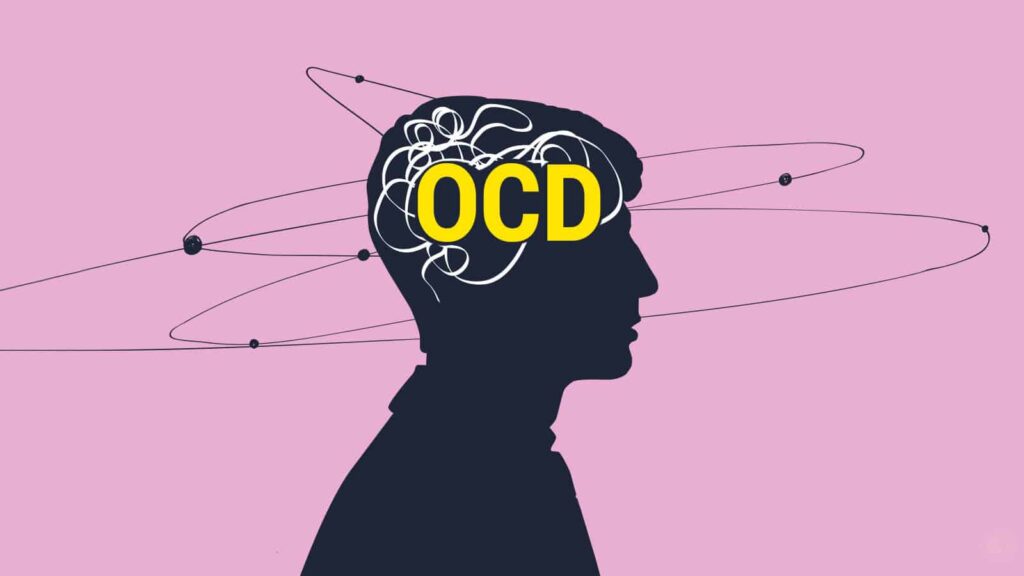Do you have a hard time resisting the urge to do something over and over again? If so, you may be struggling with OCD compulsions. This can be a difficult thing to overcome, but it is not impossible. In this blog post, we will discuss the truth about OCD compulsions and how to overcome them. We will also provide some helpful tips that can make the process a little bit easier.
Contents
What Are OCD Compulsions?
 OCD compulsions are often defined as repetitive, ritualistic behaviors that a person with OCD engages in to try to relieve their anxiety or obsessions. However, compulsions can also take the form of mental rituals (e.g., obsessively counting, silent prayers). People with OCD often feel that they must perform their compulsions perfectly or something bad will happen.
OCD compulsions are often defined as repetitive, ritualistic behaviors that a person with OCD engages in to try to relieve their anxiety or obsessions. However, compulsions can also take the form of mental rituals (e.g., obsessively counting, silent prayers). People with OCD often feel that they must perform their compulsions perfectly or something bad will happen.
It is believed that OCD compulsions are a way of coping with anxiety or obsessions. For example, a person with OCD might obsessively worry about getting sick. In order to try to prevent this from happening, they might wash their hands compulsively or avoid touching door handles.
Even so, studies have found that in OCD, this is not actually an effective way of reducing anxiety. In fact, compulsions can actually make OCD symptoms worse. This is because compulsions provide temporary relief from anxiety, which reinforces the behavior and makes it more likely that a person will continue to engage in compulsions.
Therefore, one should be aware that compulsions are not a healthy way of dealing with OCD symptoms and that they can actually make the condition worse. If you or someone you know is struggling with OCD compulsions, it is important to seek professional help. Treatment for OCD can be very effective in reducing or eliminating compulsions.
What Are The Types Of OCD Compulsions?
Generally, OCD compulsions are classified into four types:
- Washing and cleaning compulsions
- Checking compulsions
- Mental compulsions
- Physical compulsions
Each type of compulsion has different characteristics and requires a different approach to treatment. It is important to work with a mental health professional to identify the specific type of OCD compulsion you are experiencing in order to develop an effective treatment plan.
Washing and cleaning compulsions
Washing and cleaning compulsions are characterized by an excessive need to cleanse oneself or one’s environment. This may manifest as a fear of contamination or as a need to perform ritualistic hand-washing or house-cleaning. People with washing and cleaning compulsions often engage in these behaviors for hours at a time and may forego work, social activities, or other important obligations in order to complete their rituals.
Checking compulsions
Checking compulsions are characterized by a need to check or confirm that something is safe, usually related to a fear of harm. This may manifest as repeatedly checking the locks on doors or windows, checking the stove to make sure it is turned off, or repeatedly checking to see if a light is still on. People with checking compulsions often feel that they cannot “trust” their initial check and must perform additional checks to be certain. This can lead to significant anxiety and may interfere with a person’s ability to function normally.
Mental compulsions
Mental compulsions are characterized by repetitive thoughts or mental images that a person feels compelled to fixate on. This may manifest as a need to count objects, pray, or repeat words or phrases over and over again. People with mental compulsions often feel that if they do not perform their rituals, something bad will happen. This can lead to significant anxiety and may interfere with a person’s ability to function normally.
Physical compulsions
 Physical compulsions are characterized by repetitive physical actions that a person feels compelled to perform. It may develop as excessive skin-picking, hair-pulling, or tapping. People with physical compulsions often feel that if they do not perform their rituals, something bad will happen. This can lead to significant anxiety and may interfere with a person’s ability to function normally.
Physical compulsions are characterized by repetitive physical actions that a person feels compelled to perform. It may develop as excessive skin-picking, hair-pulling, or tapping. People with physical compulsions often feel that if they do not perform their rituals, something bad will happen. This can lead to significant anxiety and may interfere with a person’s ability to function normally.
So these are some of the common types of compulsions that one can have with OCD. It is important to remember that compulsions are only a symptom of the disorder and not the cause. If you or someone you know is struggling with compulsive behaviors, please seek professional help. There are many effective treatments available that can help people manage their symptoms and live normal, productive lives.
What Triggers Compulsions?
There are usually three types of things that trigger compulsions:
Internal triggers
These are thoughts or feelings that come from within you. For example, if you have contamination OCD, you may feel a need to wash your hands after coming into contact with something that you perceive as dirty. Also, internal triggers are more likely to happen when you’re feeling stressed or anxious. Some of the common may include:
- feeling that something bad will happen if you don’t do the compulsion
- overwhelmed or out of control
- have to do the compulsion perfectly
External triggers
In this, the triggers are things in the environment that trigger your OCD. For example, seeing someone else sneeze may trigger your fear of germs and cause you to start washing your hands. Also, people with OCD are believed to be more sensitive to environmental triggers than people without OCD. Some of the common external triggers could be:
- People
- Places
- Things
- Sounds
- Smells
Situational triggers
 These are things that happen in a particular situation that trigger your OCD. For example, being in a crowded place may trigger your fear of contamination and cause you to start washing your hands. These types of triggers are usually easy to avoid. But also it can be very difficult to change the environment you’re in, such as your job or where you live. Here are a few examples of situations triggers:
These are things that happen in a particular situation that trigger your OCD. For example, being in a crowded place may trigger your fear of contamination and cause you to start washing your hands. These types of triggers are usually easy to avoid. But also it can be very difficult to change the environment you’re in, such as your job or where you live. Here are a few examples of situations triggers:
- being in a place where there are a lot of people
- seeing someone you know who has OCD
- hearing about OCD or seeing it on TV
- being in a place that is messy or dirty
- thinking about something that worries you
Therefore, the triggers for your OCD may vary depending on the situation you’re in. If you’re not sure what your triggers are, it may be helpful to keep a journal of your OCD thoughts and behaviors. This can help you to identify patterns and triggers for your OCD. You should not avoid this condition otherwise with time it can make things worse. Get help today to live a quality life.
How To Overcome OCD Compulsions?
It is believed that compulsions are a way to “neutralize” or “undo” the anxiety caused by the obsessions. For example, if you are obsessed with the thought of contamination, you may feel the need to wash your hands over and over again. Or if you are obsessed with the thought of losing something, you may feel the need to check that it is still there multiple times.
Compulsions are time-consuming and often interfere with daily activities, work, and relationships. They can cause a great deal of distress. Many people with OCD realize that their compulsions are irrational, but they can be managed with some effort. Here are some tips:
Reduce the time spent on OCD compulsions
This is one of the key strategies in overcoming OCD compulsions. It can be difficult to do at first, but it is important to try to cut down the amount of time spent on compulsions. Some people with OCD find it helpful to set a timer for a certain amount of time and then force themselves to stop the compulsion when the timer goes off. For example, you can give yourself five minutes to check the locks on the door and then force yourself to stop.
Distract yourself
When you feel the urge to perform a compulsion, try to distract yourself with something else. For example, you could:
- Read a book
- Talk to a friend
- Go for a walk
- Do some deep breathing exercises
The important thing is to find something that will help you take your mind off of your compulsions. Because if you can’t do that, then you’re going to find it very difficult to overcome them.
Challenge your beliefs
 One of the core aspects of OCD is that sufferers tend to have very rigid, black-and-white thinking patterns. This can make it difficult to see any gray areas in life, which can make it hard to challenge your OCD beliefs. If you’re not used to thinking in shades of gray, it can be helpful to talk to a therapist or counselor who can help you learn how to challenge your beliefs.
One of the core aspects of OCD is that sufferers tend to have very rigid, black-and-white thinking patterns. This can make it difficult to see any gray areas in life, which can make it hard to challenge your OCD beliefs. If you’re not used to thinking in shades of gray, it can be helpful to talk to a therapist or counselor who can help you learn how to challenge your beliefs.
One of the best ways to overcome OCD compulsions is to challenge the thoughts and beliefs that are driving them. If you can learn to question your thoughts and look at things in a more flexible way, you’ll be much better equipped to deal with your compulsions.
Practice mindfulness
It is important to be aware of your thoughts and feelings without judging them. This will help you become more accepting of yourself and your compulsions. Mindfulness is a technique that can be used to stay in the present moment and observe your thoughts and emotions without getting caught up in them. For example, it can be helpful to notice the urge to wash your hands and then let it go without acting on it.
Create a routine
In OCD compulsions, it is very difficult to break the cycle of rituals and compulsions. However, by creating a daily routine, you can help to break the cycle. A routine will help to reduce the anxiety that is associated with OCD. It is also important to keep a journal of your thoughts and feelings. This will help you to identify any patterns that may be causing your OCD. If you can identify the patterns, you can then work on breaking them.
Do some exercises
Exercises are considered a great source of relief for OCD compulsions. They can help you to take your mind off of your obsessions and focus on something else. In addition, exercises can also help to release endorphins, which can improve your mood. Studies have found that people who suffer from OCD tend to have lower levels of serotonin, so exercising can be beneficial in that regard as well.
There are a few different types of exercises that can be helpful for OCD compulsions. Cardio exercises such as running or swimming can help to increase your heart rate and take your mind off of your obsessions.
A healthy lifestyle
 While exercising and other forms of self-care are important for everyone, they’re especially critical for people with OCD. A healthy lifestyle helps to reduce stress, which can trigger OCD symptoms. It also helps to promote a sense of well-being and control. Some of the common things that you should try to incorporate in your life if you have OCD include:
While exercising and other forms of self-care are important for everyone, they’re especially critical for people with OCD. A healthy lifestyle helps to reduce stress, which can trigger OCD symptoms. It also helps to promote a sense of well-being and control. Some of the common things that you should try to incorporate in your life if you have OCD include:
- Eating a balanced diet
- Getting enough sleep
- Reducing your intake of caffeine and alcohol
- Spending some time in nature
So, with these regular things, you will better manage and overcome OCD compulsions. In fact, it is important to understand that you can manage and live with your OCD, but it will take time, consistency, and effort. Remember that you are not alone in this battle. There are many other people who are going through the same thing.
Seek professional help if you feel like you need it. The most important thing is to never give up on yourself. You can overcome OCD compulsions.
Conclusion
OCD compulsions are basically just a way for our brain to try and cope with anxiety. By understanding this, we can start to see why compulsions don’t actually work. They may provide temporary relief from anxiety, but in the long run, they just make things worse. However, there are things that we can do to help overcome our compulsions.
The most important thing is to realize that compulsions are not going to help us in the long run. We need to find other ways to deal with our anxiety. This may include therapy, medication, or other methods. These OCD compulsions are also often based on false beliefs. So it is important to do something in order to prevent a bad outcome from happening.
There are many people who understand what you’re going through and can offer helpful advice. You can also reach out to Therapy Mantra. We have a team of professional therapists who can provide you with the support and guidance you need to recover from this condition. Contact us today to learn more about our services. You can also book an online therapy session or download our free OCD treatment app on Android or iOS.


